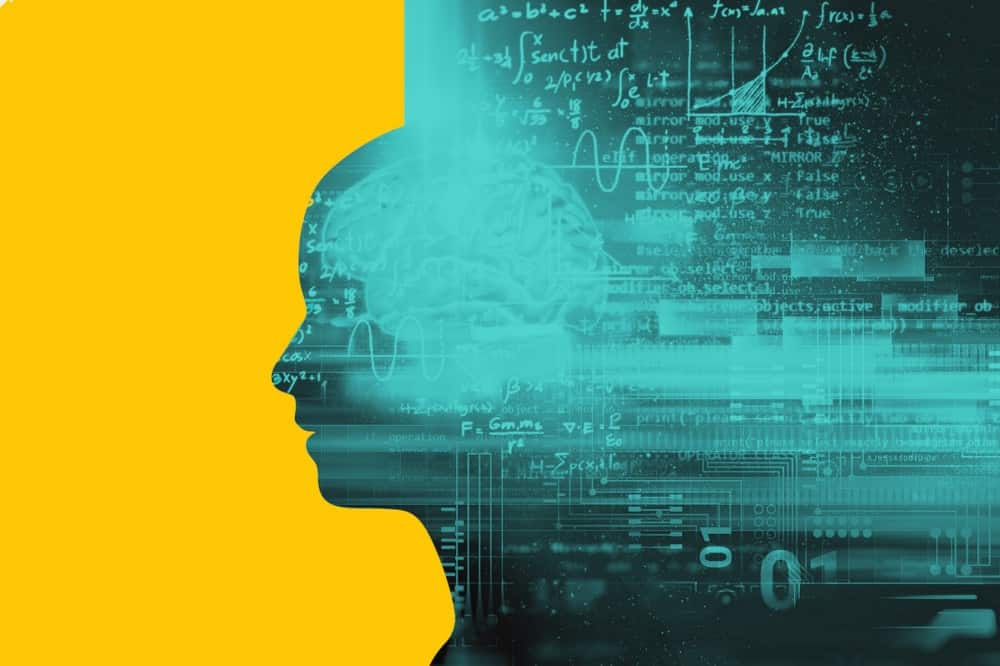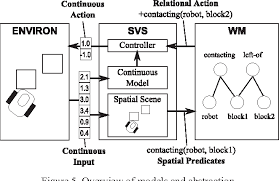
An AI chess gamer is a computer program which plays chess. There are several levels of skill. An AI chess player of the highest caliber will have a rating at least 3000. You can change the level of the computer to make it close. The score will appear to the right of the status message, and if one color is ahead tactically, it will also indicate it.
AlphaZero
The AI chess player known as AlphaZero has a powerful representational approach. It can receive the current board layout and any previous moves. This information is used to estimate winning chances and determine best moves. AlphaZero employs a representational algorithm called M.C.T.S. which focuses on the best move to win. Its neural networks are trained on approximately 80,000 positions per minute and are currently ranked fourth around the globe.
Many believe AlphaZero to be an artificial intelligence. However, a recent study has shown that AlphaZero can actually learn new games, which is why it displays a unique, dynamic, and creative playing style. Matthew Sadler, Natasha Regan and other chess experts have studied AlphaZero’s play. They concluded that AlphaZero’s strategy was not only unique and creative, but also dynamic.

Deep Blue
Deep Blue is an artificial intelligence chess program developed by IBM. The parallel chess tree search algorithm used by this system allows it to analyze millions upon millions of possible moves in order to find the most suitable move for any given position. It can analyze up to 100,000,000 chess position per second. The new program was tested by IBM researchers, who had no prior experience in chess. They brought in Joel Benjamin, a U.S. grandmaster and a chess player to help them.
IBM researchers used Deep Blue algorithm to develop a new machine. The team designed new chips for chess and optimised many processors so that they could work together. The ultimate machine was a supercomputer of 30 processors with 480 custom-designed integrated circuits. Deep Blue used the name Deeper Blue to refer to the new version. It could explore 40 possible futures. It was first announced in 1998.
Humans
In 15 years, no human chess player has ever beaten an AI chess player. The dominance and success of AI chess has hampered creativity and produced soulless algorithms. A new paper shows that AI can be beneficial for humans. This new engine for chess mimics human play. It also improves on the skills of professional players and amateurs. Recent research by the University of California Berkeley also showed that AI has an advantage over human gamers.
Computers are much better than humans at chess because they can learn from previous games and study them. Human chess professionals spend years improving their skills. The AI is capable of learning the game in a fraction the time as a human. AI is also able to learn the game without rest or rely on human study habits. They may be able to play better than humans in the future, and they might even become better chess players.

Silicon
Magnus Carlsen, a 23-year old world chess champ, met with techies recently in Mountain View. Peter Thiel, the billionaire investor and PayPal co-founder, was interviewing him. The audience laughed and reacted to his concise answers. It's not surprising that a Silicon Valley techie would want to learn the secrets of a genius chess player.
The silicone chessboard can be cleaned with a damp cloth. You should not let it get too wet. Use the clean side. It is important to repeat this step after every use. If dirt hardens, it will be difficult to clean. Wiping down the board after every use is the best way to keep it clean. If the dirt gets too thick or hard to remove you may need to get a new one.
FAQ
Where did AI come?
Artificial intelligence was created in 1950 by Alan Turing, who suggested a test for intelligent machines. He stated that intelligent machines could trick people into believing they are talking to another person.
John McCarthy, who later wrote an essay entitled "Can Machines Thought?" on this topic, took up the idea. John McCarthy, who wrote an essay called "Can Machines think?" in 1956. He described in it the problems that AI researchers face and proposed possible solutions.
AI: Is it good or evil?
AI is seen in both a positive and a negative light. The positive side is that AI makes it possible to complete tasks faster than ever. It is no longer necessary to spend hours creating programs that do tasks like word processing or spreadsheets. Instead, instead we ask our computers how to do these tasks.
People fear that AI may replace humans. Many believe that robots could eventually be smarter than their creators. This means they could take over jobs.
Who was the first to create AI?
Alan Turing
Turing was created in 1912. His mother was a nurse and his father was a minister. At school, he excelled at mathematics but became depressed after being rejected by Cambridge University. He started playing chess and won numerous tournaments. After World War II, he was employed at Bletchley Park in Britain, where he cracked German codes.
He died in 1954.
John McCarthy
McCarthy was born in 1928. He was a Princeton University mathematician before joining MIT. There, he created the LISP programming languages. By 1957 he had created the foundations of modern AI.
He passed away in 2011.
Why is AI important?
In 30 years, there will be trillions of connected devices to the internet. These devices will include everything, from fridges to cars. The Internet of Things (IoT) is the combination of billions of devices with the internet. IoT devices can communicate with one another and share information. They will also make decisions for themselves. Based on past consumption patterns, a fridge could decide whether to order milk.
It is anticipated that by 2025, there will have been 50 billion IoT device. This represents a huge opportunity for businesses. However, it also raises many concerns about security and privacy.
What are the benefits of AI?
Artificial Intelligence, a rapidly developing technology, could transform the way we live our lives. It's already revolutionizing industries from finance to healthcare. It's predicted that it will have profound effects on everything, from education to government services, by 2025.
AI has already been used to solve problems in medicine, transport, energy, security and manufacturing. The possibilities for AI applications will only increase as there are more of them.
It is what makes it special. It learns. Computers are able to learn and retain information without any training, which is a big advantage over humans. Instead of teaching them, they simply observe patterns in the world and then apply those learned skills when needed.
This ability to learn quickly is what sets AI apart from other software. Computers can scan millions of pages per second. They can translate languages instantly and recognize faces.
Because AI doesn't need human intervention, it can perform tasks faster than humans. It may even be better than us in certain situations.
In 2017, researchers created a chatbot called Eugene Goostman. Numerous people were fooled by the bot into believing that it was Vladimir Putin.
This proves that AI can be convincing. AI's adaptability is another advantage. It can be easily trained to perform new tasks efficiently and effectively.
This means businesses don't need large investments in expensive IT infrastructures or to hire large numbers.
What is the role of AI?
An artificial neural networks is made up many simple processors called neuron. Each neuron receives inputs and then processes them using mathematical operations.
Neurons can be arranged in layers. Each layer performs a different function. The raw data is received by the first layer. This includes sounds, images, and other information. It then passes this data on to the second layer, which continues processing them. The final layer then produces an output.
Each neuron also has a weighting number. This value is multiplied each time new input arrives to add it to the weighted total of all previous values. If the number is greater than zero then the neuron activates. It sends a signal up the line, telling the next Neuron what to do.
This process repeats until the end of the network, where the final results are produced.
How does AI impact the workplace
It will change our work habits. We'll be able to automate repetitive jobs and free employees to focus on higher-value activities.
It will help improve customer service as well as assist businesses in delivering better products.
It will allow us to predict future trends and opportunities.
It will enable organizations to have a competitive advantage over other companies.
Companies that fail AI adoption are likely to fall behind.
Statistics
- The company's AI team trained an image recognition model to 85 percent accuracy using billions of public Instagram photos tagged with hashtags. (builtin.com)
- In 2019, AI adoption among large companies increased by 47% compared to 2018, according to the latest Artificial IntelligenceIndex report. (marsner.com)
- While all of it is still what seems like a far way off, the future of this technology presents a Catch-22, able to solve the world's problems and likely to power all the A.I. systems on earth, but also incredibly dangerous in the wrong hands. (forbes.com)
- More than 70 percent of users claim they book trips on their phones, review travel tips, and research local landmarks and restaurants. (builtin.com)
- By using BrainBox AI, commercial buildings can reduce total energy costs by 25% and improves occupant comfort by 60%. (analyticsinsight.net)
External Links
How To
How to set Cortana for daily briefing
Cortana, a digital assistant for Windows 10, is available. It's designed to quickly help users find the answers they need, keep them informed and get work done on their devices.
The goal of setting up a daily briefing is to make your personal life easier by providing you with useful information at any given moment. The information should include news, weather forecasts, sports scores, stock prices, traffic reports, reminders, etc. You can choose the information you wish and how often.
To access Cortana, press Win + I and select "Cortana." Click on "Settings", then select "Daily briefings", and scroll down until the option is available to enable or disable this feature.
If you have enabled the daily summary feature, here are some tips to personalize it.
1. Start the Cortana App.
2. Scroll down to the "My Day" section.
3. Click the arrow next to "Customize My Day."
4. Choose which type of information you want to receive each day.
5. Change the frequency of the updates.
6. You can add or remove items from your list.
7. Save the changes.
8. Close the app